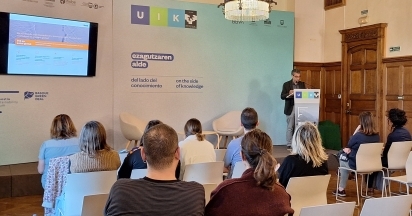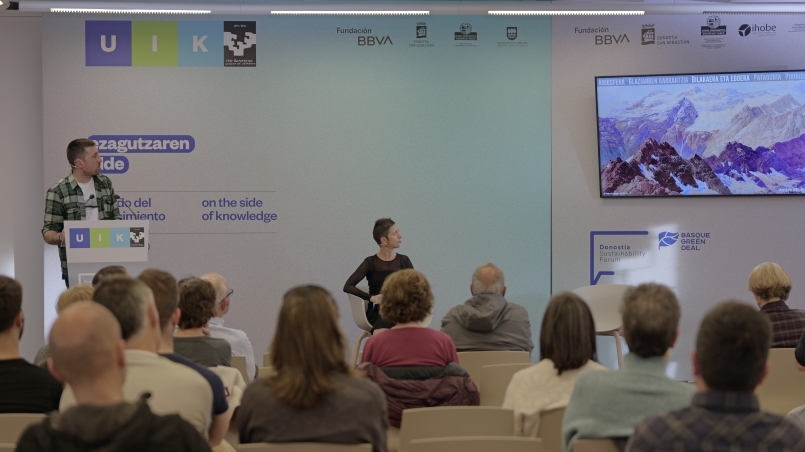“Under-fives bear 88% of the burden of disease attributable to climate change’
This was stated by the paediatrician Quique Bassat, specialist in epidemiology and director general of the Barcelona Institute for Global Health, at the presentation of his talk ‘Climate emergency and global paediatric health’, within the framework of the Donostia Sustainability Forum.

Bassat explained that children are the most vulnerable in the climate crisis, due to the accumulated years of high exposure to its consequences, to their dependency on adult carers, and because ‘they are not heard and they therefore risk being overlooked by politicians’. They represent the example of a crisis that is hitting poor countries and the most defenceless population.
ISGlobal mainly researches the impact of the climate crisis on human health, particularly in the poorest countries, that are subject to great environmental risks and with few or practically no response capacity to situations such as epidemics of infectious diseases. Promoting health equity - involving research passed on to society - is one of the missions of this public-private initiative, which has the support of La Caixa Foundation.
Poorest countries will suffer the most
As Quique Bassat explained, the climate emergency is leading to an increase in the frequency and intensity of natural disasters, which, in turn, result in mass migrations and the appearance of epidemics of infectious diseases in countries with few resources. ‘The poorest countries are the ones that most suffer; that is a terrible paradox, as they are the ones that have least contributed to this situation and are the most vulnerable to suffer its consequences’, highlighted Quique Bassat, who recalled that a third of the world's inhabitants live in poverty. A figure to which 100 million more people will be added in a few years due to the current crisis, he added. ‘If the current scenario continues, more than 3 billion people will be in such conditions in just three decades.’ The majority of the world's children already live in low or medium-income countries and are the most vulnerable to the consequences of climate change.
Africa's children
Quique Bassat pointed out that Africa is the continent whose population is growing at the fastest rate and, in just one generation, one out of every three children of the world will live on that continent. Minors in Africa will be particularly affected ‘as they are children and they are poor, which will make them more vulnerable to disease’, explained the ISGlobal director; he considers that the already evident threats are droughts and flooding in areas suffering from food security and, consequently, the proliferation of diseases related to malnutrition and the lack of access to drinking water and sanitation.
Natural disasters and population displacement
When populations - added Bassat - flee from natural disasters and end up in refugee camps, the consequences include outbreaks of infectious diseases such as cholera. ‘We will, unfortunately, see schooling and vaccine programmes disrupted due to the population being displaced, as we have already seen in places affected by natural disasters.’ The ISGlobal director also referred to the health of pregnant women, who are affected by the rising temperatures, as that ‘increases the risk of premature births and perinatal mortality’. He likewise stressed that there is a greater risk of respiratory diseases for the whole population due to climate change.
Non-imported diseases
Quique Bassat went on to stress the proliferation of diseases transmitted by vectors such as mosquitoes, that thrive in favourable temperature and humidity conditions. Climate change is causing these diseases to spread beyond the countries where they are endemic, he pointed out. ‘In Cambrils, we have had five indigenous cases of dengue; such cases are not imported, they are ones where the vector is already in our environment and the disease is transmitted there. There have also been cases of malaria in Florida. We are witnessing how diseases are returning that we had managed to eliminate.’
Increasing inequalities
‘Nevertheless, the world is better now that just a few decades ago in terms of public health. Inequalities are what are increasing’, added the ISGlobal director, who pointed out that ‘climate change is the greatest threat to the survival of our species. An ill-defined and abstract threat to health. But we have to be clear that it is a real threat and is already happening. We cannot face health problems without taking into account the social determinants, the risk factors of the diseases and the environmental and climate factors.’

